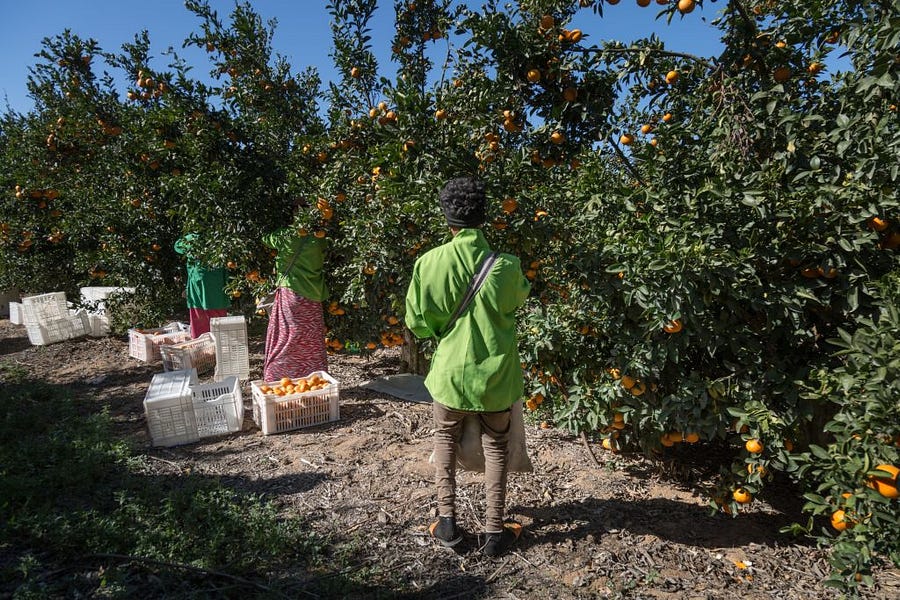So far, the relationship between the European Union and Africa has been a complicated one. Food producers have little opportunity to access the European market, which is protected through high food standards and the subsidization of farmers and farmland. On energy, Europe has been happy to look East rather than South, making Africa’s potential unexplored. In recent years, only China’s heavy economic involvement in the region sparked European lawmakers to take an interest in sub-Saharan Africa, but once again less from the viewpoint of equal business partners, but rather from the standpoint of competing international interest. The war in Ukraine will turn the tide on the African position.
Just a few weeks ago, when an official from the European Commission’s department of agriculture was asked in a webinar how he thinks Africa can cope with Europe’s high standards for food and sustainable agriculture, he was rather dismissive. The EU has the highest food standards because of consumer demand, John Clarke said, and if Africa is having a problem because of this “unapologetic” approach, Brussels would be there to require targeted development aid from the EU.
The EU’s food standards govern anything from allowed crop protection use to accurate labeling, and are as the EU says itself very high. Eight percent of African imports are rejected at the border for non-compliance. In a study on African food imports, researchers found that African Union member states struggle to access the European market: “Although member countries are making strides towards meeting the 10% budgetary allocation to promote agriculture exports, lack of access to markets due to NTBs, specifically, product standards, create major hurdles for African economies to break through and reach global markets, especially in industrialized countries.”
Then there’s the “carbon border adjustment mechanism, which intends to tax products imported into the EU at the same rate experienced by local manufacturers. CBAM, which is currently in the planning phase, is Brussels’ response to the criticism by European farmers and industries that green policies undermine the level playing field and provide an unfair competitive advantage to those located outside of the EU’s jurisdiction. This will have consequences for countries in Africa, according to the Center for Global Development: Mozambique’s GDP, for example, would drop by about 1.5 percent because of the tariffs on aluminum exports alone. While Germany had sought alternatives that would include Africa in a so-called “climate club” and feather the effects of the carbon dioxide import tariff, France had been more stubbornly attached to CBAM as an EU-only mechanism.
Russia’s war against Ukraine creates an opportunity for the EU to seek a more productive relationship with African nations, one that will benefit both parties. Ukraine recently decided to ban exports of wheat and oats, and the sanctions regime against Russia is severely impacting trade across the European continent. That said, the current crisis is not just an opportunity to ramp up food exports and negotiate for exemptions to new tariffs but also to put Africa on the map as an alternative for Russian natural gas. Algeria supplies roughly 11 percent of Europe’s gas needs, and has said it can ramp up production by almost 50 percent through the existing TransMed pipeline. Italian Foreign Minister Luigi di Maio, who is on a fact-finding mission to scramble for alternatives to Russian natural gas, recently visited the country. For years, the switch by European nations to Gazprom had been an easier one for an important reason: Russian gas is cheaper.
While Algeria, Tunisia, Egypt, and Libya are important players, sub-Saharan Africa will also see its geostrategic role improve. Nigeria, Mozambique, and Senegal have lobbied in the past to get European financial aid to develop and exploit their natural gas reserves and are now in unique positions to get their voices heard in Brussels. Tanzania, which just last year was trying to unlock foreign investments into its gas development, is now more likely than ever to access the LNG (liquified natural gas) market, as Europe increasingly banks on LNG shipments from around the world. Ghana, another player that in the last 10 years has seen a significant domestic increase in gas needs, is now on the springboard to becoming part of the energy exporters club.
No matter how the war ends, the EU’s relationship with Russia is set to be damaged for years, if not decades, to come. This is an opportunity for African players to step in, make demands, and put their foot down on fair trading practices.
In late February, the EU-Africa summit took place in Brussels. The narrative surrounding this meeting was too much about how Europe can help Africa and not enough about how both blocs can do business on equal terms. The next summit, whenever it takes place, will play out with different dynamics.
Bill Wirtz is a political commentator from Luxembourg, covering EU politics and policy.








Please note that we at The Dispatch hold ourselves, our work, and our commenters to a higher standard than other places on the internet. We welcome comments that foster genuine debate or discussion—including comments critical of us or our work—but responses that include ad hominem attacks on fellow Dispatch members or are intended to stoke fear and anger may be moderated.